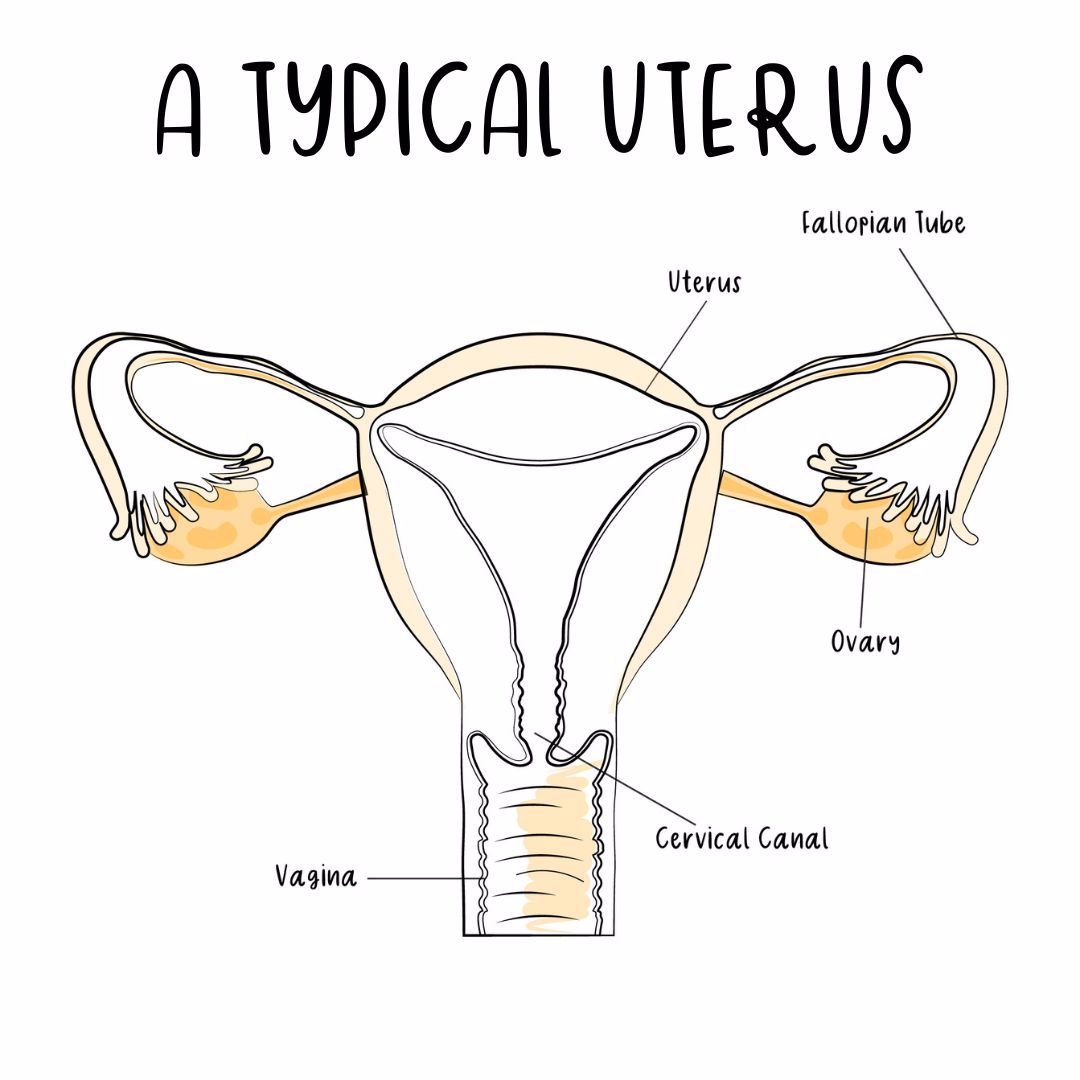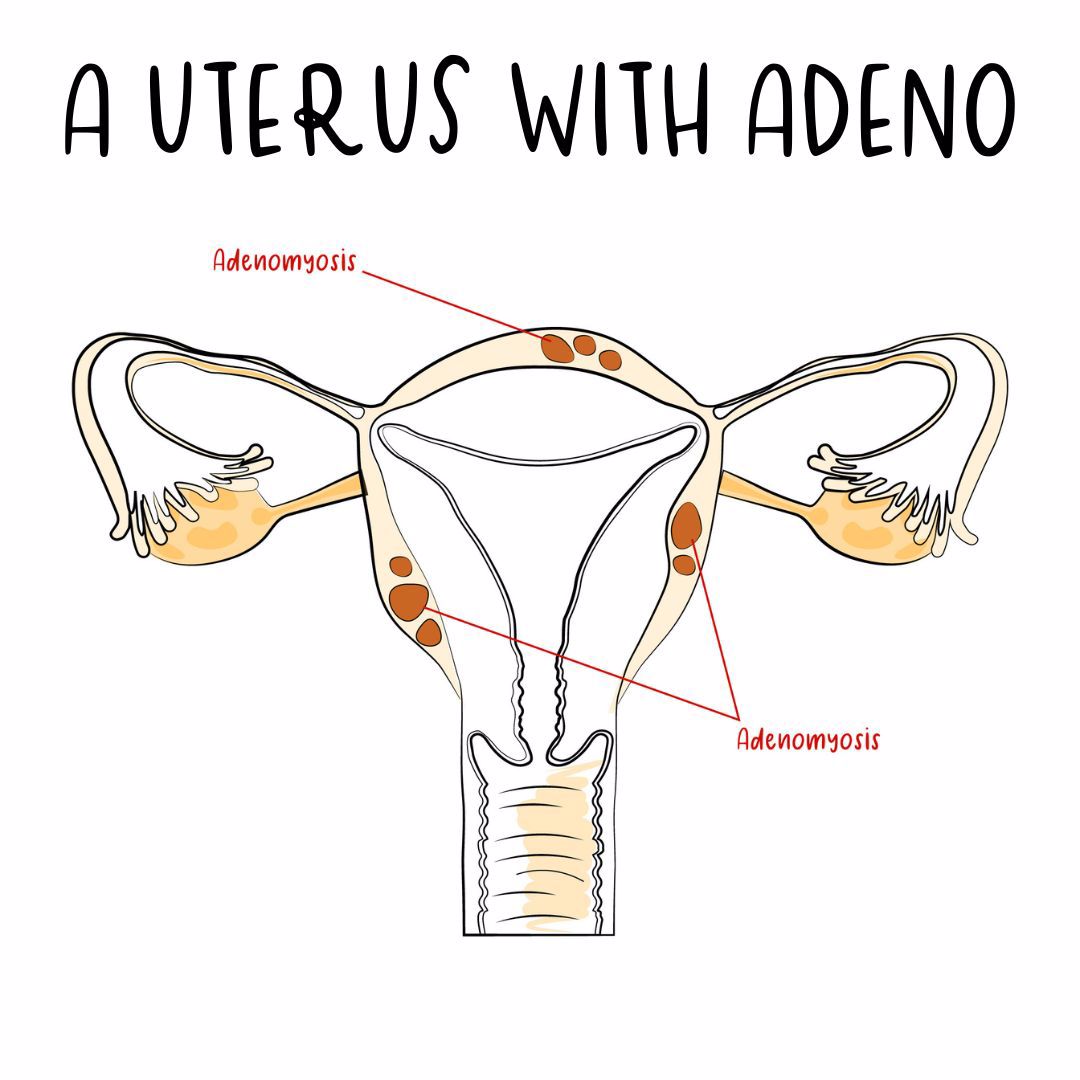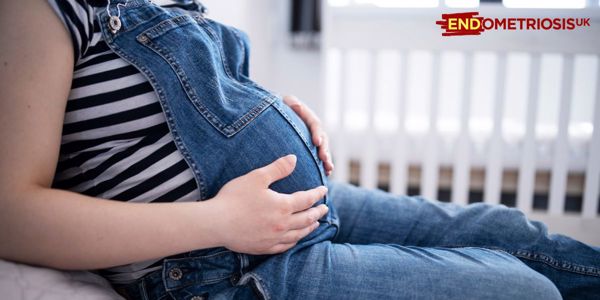Adenomyosis is often referred to as 'endometriosis' cousin', as the two chronic conditions share similarities.
However, the condition is much rarer than endometriosis, as only 1 in 500 women and people assigned female at birth receive a diagnosis, compared to 1 in 10 for endometriosis. Outside of the medical community, very few people know of Adenomyosis unless they have a personal diagnosis or a loved one is diagnosed with the condition.
Many people are also misdiagnosed with endometriosis only, but it is possible to have adenomyosis at the same time too. This is because, until recently, the only way to diagnose it was through a hysterectomy. However, now it is able to be found through a pelvic examination.
Adenomyosis can affect a person's fertility much more than endometriosis. However, it is more underresearched in comparison, so the extent of its impact is not fully known.
It is important to note that adenomyosis is not an infection, is not contagious and is not a form of cancer.
What is Adenomyosis?
The main difference is for endometriosis, the endometrial tissue is found elsewhere in the body, outside of the womb, but for adenomyosis, the cells grow into the muscular wall of the uterus.
This can cause the uterus to become enlarged, painful during menstruation, and may also cause heavy menstrual bleeding. It may also be associated with fertility problems. The exact cause of adenomyosis is not known, but it is thought to be related to hormonal imbalances.
To understand more about the condition, check out Endometriosis UK's webinar.


How Does Adenomyosis Affect Fertility?
As most women with adenomyosis receive their diagnosis in their 40s or 50s, this tends to come after childbearing years; therefore, research has been limited until recently. While recent studies have found a link between adenomyosis and infertility, the exact reasons are not clear.
Adenomyosis can affect how embryos attach and grow in the uterus and how the placenta develops because of changes in the genes that control blood vessel growth and cell death.
Other factors related to implantation are also altered, such as hormone receptors and chemical levels. People with adenomyosis may also have changes in the uterus that make it harder for fertilised eggs to implant, which can lower fertility.
Your Baby Club and Center Parcs are giving you a chance to win a family break in a Woodland Lodge at a UK Center Parcs village of your choice.
How Does Adenomyosis Affect Pregnancy?
Several studies have identified that adenomyosis may cause pregnancy complications, such as a 28% reduction in the likelihood that clinical pregnancy would be successful and a much higher risk of miscarriage.
The presence of adenomyosis has also been found to lead to a 41% decrease in live birth rate, as well as late pregnancy and neonatal complications such as premature birth, placenta previa, pregnancy-induced hypertension and postpartum haemorrhage.
Why Is Endometriosis Action Month Important for Adenomyosis?
There is an urgent need for more research to be done into the condition and a better standard of care for the individual at all stages in someone's pregnancy journey. At this point in time, the treatment options for someone with adenomyosis are very minimal - tending to be the use of anti-inflammatory painkillers, hormone therapy (such as the contraceptive pill or use of the Mirena coil, similar to endometriosis) and a hysterectomy.
"We know that those with endometriosis, who may also have adenomyosis, often come up against myths about the disease - including that it is 'just one of those things you have to deal with'. This must change in order to ensure those with endometriosis and adenomyosis get the care they deserve." - Faye Farthing, Head of Campaigns and Communications at Endometriosis UK.
What Are the Symptoms of Adenomyosis?
It's possible to have no symptoms and still have adenomyosis. It's also important to note that there is a large overlap in symptoms with endometriosis, and it's always best to speak to a professional if you're experiencing symptoms of either condition. Typical symptoms may include:
- Heavy periods that last a long time
- Painful sex or bleeding during/after sex
- Severe period pain
- A feeling of pressure in your tummy
- Bloating
This month, show support to those around you who have been diagnosed, whether they are currently trying to conceive, are currently pregnant, or not thinking about children at the moment.





